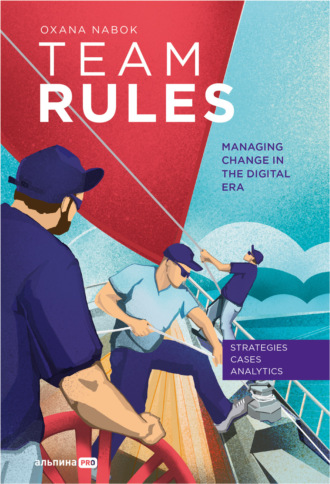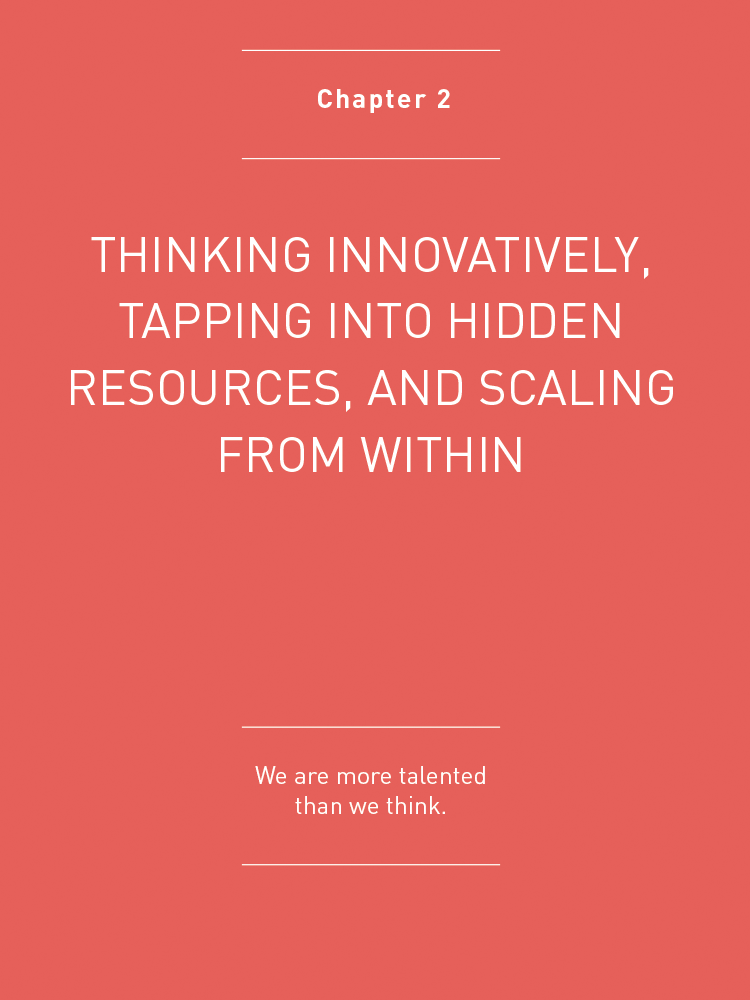
Полная версия
Team Rules: Managing Change in the Digital Era

The continuous development of employees has always been, and remains, essential for the success and growth of the organization. Yet the world is evolving at a rapid pace, pushing us to keep up with it and reducing the time available for response and adaptation.
Consequently, operational integration of changes, sustainable development, and the recognition of transformation as an intrinsic and integral aspect of the organization's survival now take center stage.
The leader faces two major challenges.
1. Preparing the team and organization for transformation to enable new processes and improvements. To prevent potential resistance of employees to innovation, it is important to lay the groundwork in advance: set goals, communicate the purpose, strategize on motivation, involve the team, ensure they have access to the necessary resources.
2. Managing and facilitating changes (initiatives, rhythm, higher productivity) during the introduction of innovations. What are the primary roadblocks?
• A strategy is imposed from above (leaders) and outside (consultants), but units and employees fail to see its strengths and do not share the management's vision.
• There is no clear or transparent monitoring of the effectiveness of implemented innovation, and no objective metrics or KPIs that can be used to evaluate the effectiveness.
• There is neither reactive collaboration nor sync between units. Each new process requires a startup phase; failures occur at the interfaces of these processes.
• Employees lack the competencies needed to drive change. Inadequate and unsystematic training fails to provide a clear understanding of the tasks and methods required for their execution.
• Traditional organizational design does not support innovation.
• Any additional workload during the implementation stage and any doubts born from the fear of change and the feeling of uncertainty can result in resistance from the team.
At the same time, in addition to strategic priorities and planning, important drivers of growth include the choice of the most effective digital tools and taking into account the opinions of key stakeholders (teams, partners, customers, etc.) when implementing change. This approach enables companies to develop and expand not only through external expansion, such as opening new offices, franchises, licenses and distribution channels, but also through internal optimization, uncovering hidden resources and eliminating inefficient processes and any impediments to progress, all while striving for a more environmentally sustainable, energy-efficient, and secure path forward.
Конец ознакомительного фрагмента.
Текст предоставлен ООО «Литрес».
Прочитайте эту книгу целиком, купив полную легальную версию на Литрес.
Безопасно оплатить книгу можно банковской картой Visa, MasterCard, Maestro, со счета мобильного телефона, с платежного терминала, в салоне МТС или Связной, через PayPal, WebMoney, Яндекс.Деньги, QIWI Кошелек, бонусными картами или другим удобным Вам способом.
Сноски
1
. https://www.rbc.ru/technology_and_media/01/02/2022/61f3d76f9a794775ff544309
2
. https://rb.ru/story/kaspi/
3
. https://vc.ru/insidevk/84467-ekosistema-ekosistem-strategiya-mail-ru-group
4
Lifelong learning stands for the ongoing, voluntary, and self-motivated pursuit of knowledge.
5
CRM (customer relationship management) is an information system to manage relationships with customers and partners.



